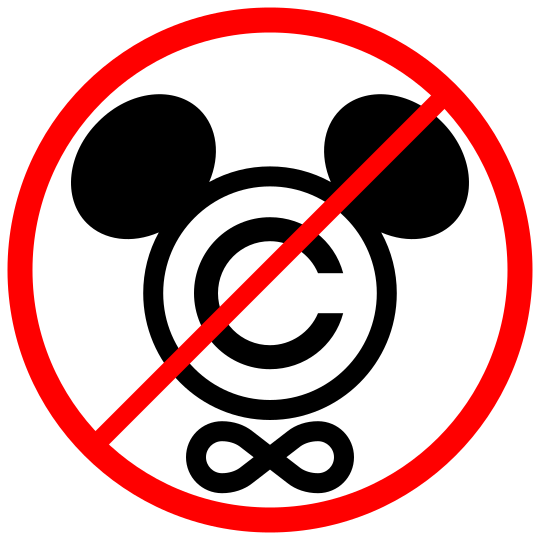STOP: Read the United States Constitution, if you haven't ever - I highly recommend it.
You might find Article I Section 8 Clause 8 interesting, allow me to quote it here:
"To promote the progress of science and useful arts, by securing for limited times to authors and inventors the exclusive right to their respective writings and discoveries;"
It is critical to note that the idea of a copyright or patent is to secure only a limited period of protection. The keyword here is ‘limited’. I'd like to share my opinion on why current trends in copyright law are anti-competitive, unconstitutional, and sniffling artistic and economic progress.
First, consider that a limit for a copyright was originally established when the first copyright laws were drafted. Henceforth modifying that duration with a "Copyright Extension" act will set LEGAL precedence to extend the duration. Thus, future extensions are now legal via precedence of previous extensions. As such extending indefinitely is legal and constitutional. This is a direct contradiction with the United States constitution and also a logical fallacy. We should not be extending the copyright duration simply because it has been legally extended in the past, those past decisions were as unconstitutional as future ones.
Second, consider patents. The limit applies to patents and copyrights, yet copyright extensions wildly outpace patent extensions. Why is that? It seems to me that certain individuals (Disney, Sonny Bonno) are spending huge quantities of money to lobby for extensions that serve their purpose. This is interesting because the US Constitution is supposed to provide laws that serve the public, not Disney. There is no real positive benefit to the US Public by extending copyright protection further.
Third, proponents believe extending copyrights will encourage progress in the arts because artists will have to create original work instead of modifying existing work; this belief is actually quite wrong. Take technology for example, it is obvious that innovation is faster and vastly more effective than invention. In fact, imagine a world where innovation was illegal, only invention. If only the inventor of a technology could innovate on it, you wouldn’t be reading this blog on the internet, let alone on a PC Computer, unless Bell Laboratories were innovative enough to develop every piece of technology in the US that uses a transistor. That’s right; the very first bipolar point-contact transistor was invented by a couple nerds working for AT&T. If innovation was illegal, there would be no Intel, no IBM, no AMD, no Microsoft, and no progress. Sure, there would be some new inventions we don’t have today… but at what cost?
Indefinite copyrights clobber innovation, stifle advancement, and undermine the constitution. It’s not about “Fairness” or “Sticking it to the man” it’s about (something that may seem equally as arbitrary, yet profoundly more important) the spirit of the United States Constitution and enforcing the philosophies of the founding fathers.
I could discuss this for days… but fellow students probably didn’t read this far anyways…

No comments:
Post a Comment